A review of the year: highlights of 2017
Looking back at some of the University's achievements over the past 12 months.
January 2017: Zebrafish aid quest to treat disease
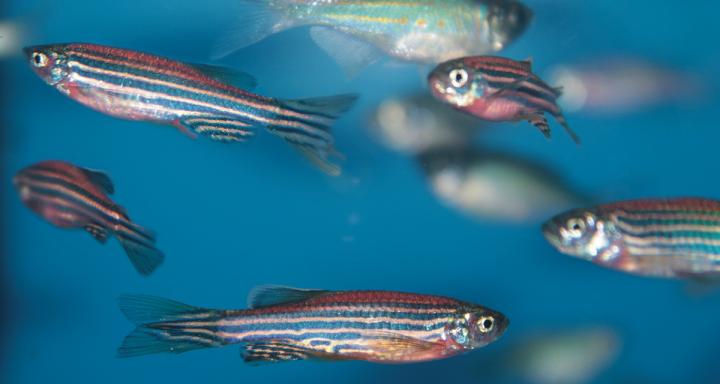
A study, published in the journal Scientific Reports, revealed how tropical fish are helping scientists to stop inflammation in the body.
Researchers used specialised microscopes to watch neutrophils cells, that are part of the immune system, as they heal wounds in living zebrafish. Once an infection has been cleared, neutrophils usually self-destruct to prevent bystander damage to healthy tissues. Scientists discovered that a key molecule called CDK9 helps neutrophils to swerve the self-destruct process, keeping the inflammation going. Blocking CDK9 – using drugs called CDK9 inhibitors – triggered the neutrophils to die, resolving inflammation in the fish.
“These relatively simple fish are helping us to understand the fundamental process underpinning the resolution of inflammation, and will help discover new therapies for the treatment of inflammatory diseases,” said Professor Adriano Rossi of the Medical Research Council Centre for Inflammation Research, where the research was carried out.
February 2017: Enhancing skills through the Festival of Creative Learning
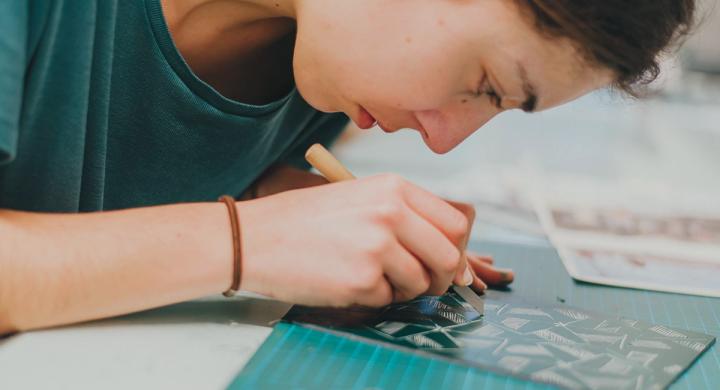
The University’s Festival of Creative Learning saw more than 130 events open to all staff, students and members of the wider community. The week-long event aimed to give people an opportunity to work together and learn new skills.
Among the inspiring and creative offerings were a mathematics themed bake-off competition, a workshop showcasing the biological science behind glow-in-the-dark plants, and an introduction to mindfulness and beginners’ Spanish – combining relaxation with learning a new language.
Run by the Institute for Academic Development, the Festival of Creative Learning builds on Innovative Learning Week, which ran from 2012 to 2016. It aims to celebrate and share good practices happening throughout the University, and support innovative ways of teaching.
March 2017: World’s first national live music census takes place

For 24 hours in March, organisers of the UK Live Music Census monitored performances in cities across the country – including buskers, choirs, pub gigs and stadium concerts. The aim of the survey – a world first – was to help measure live music’s cultural and economic value and inform policy to help it flourish.
The Arts and Humanities Research Council-funded census – conducted by the Universities of Edinburgh, Newcastle and Glasgow – recruited volunteers to record aspects of a gig including the musical genre, the venue and the audience demographic.
Dr Matt Brennan, Chancellor’s Fellow, Reid School of Music, said: “Live music in the UK – from the Beatles and the Sex Pistols to West End musicals and Glastonbury – has transformed our culture, yet it is constantly under pressure. This census will help give us an accurate snapshot of the scene’s health.”
April 2017: Funding backs next stage of Roslin research
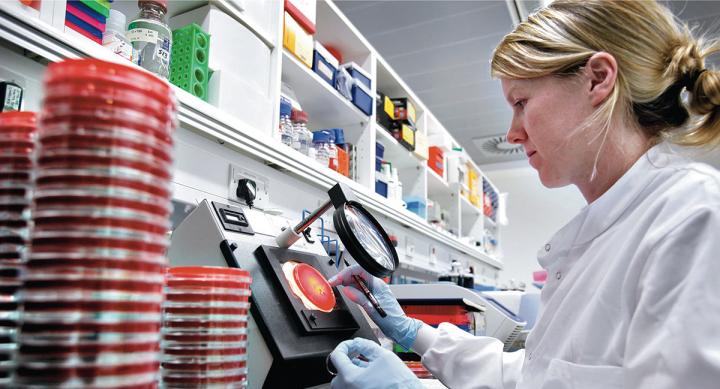
Research to improve the health, welfare and sustainability of livestock farming received a £29.3 million award from the Biotechnology and Biological Sciences Research Council (BBSRC). The funding is part of a £318 million UK-wide investment by the BBSRC to support strategic research programmes in the UK’s National Institutes of Bioscience, of which the University’s Roslin Institute is one.
“The Institute plays a pivotal role in the University’s mission to tackle the many pressing issues in animal health and welfare, including those which have implications for human health and sustainability of animals in the food chain,” explained Professor Sir Timothy O’Shea, Principal and Vice-Chancellor at the University.
The funding will support three key programmes of research: how genes determine the healthy development and function of systems in the body; infectious diseases in farmed animals; and the role of genetic, environmental and dietary factors that affect livestock growth.
May 2017: Edinburgh wins the Scottish Boat Race
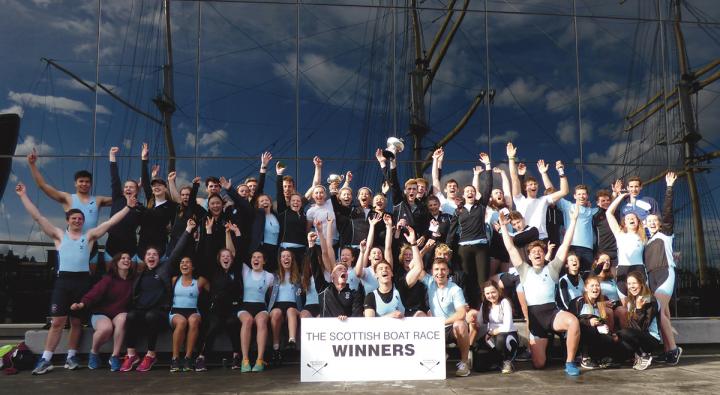
Edinburgh rowed to victory over Glasgow rivals in the Scottish Boat Race. The annual rowing competition, held on the River Clyde, is the third oldest boat race in the world.
Edinburgh took the trophy after winning all seven of the races: the Graduates Race; Men’s Beginner VIII; Novice Women’s Race; Men’s 2nd VIII; Women’s 2nd VIII; Men’s 1st VIII and Women’s 1st VIII. Rowers included beginners, alumni, and senior men and women from Edinburgh University Boat Club.
The Boat Club, which celebrated its 150th anniversary in 2017, is one of the biggest sports clubs at the University with 230 members. It is one of only a handful of clubs in the UK to host a high-performance programme supported by the organisation British Rowing. The programme was awarded in recognition of the club’s excellent track record nurturing world-class rowers.
June 2017: Innovation celebrated at Inspire Launch Grow Awards
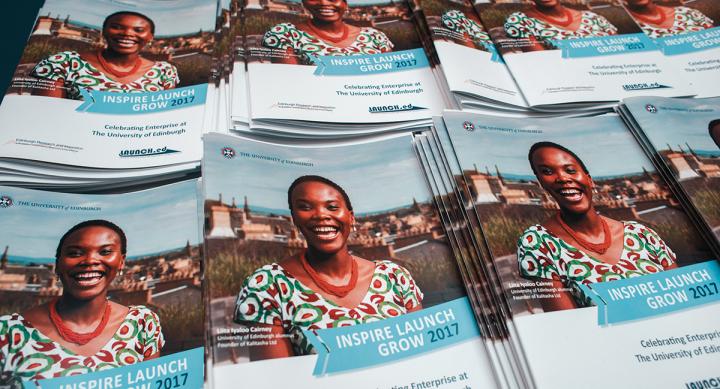
The 2017 Inspire Launch Grow (ILG) Awards were held in the University’s Informatics Forum. The annual awards recognise University staff, researchers, students and alumni who have started a business or social enterprise or turned their research into a business opportunity. Prize money worth a total of £20,000 was awarded to winners of the Innovation Cup, Emerging Innovation Award, the Social and Environment Award and the Enterprise Award.
Grant Wheeler, Head of Enterprise Development at Edinburgh Innovations, commented: “The entrepreneurial talent here at the University is among the best in the UK and this is reflected in the quality of this year’s entries to the ILG awards. The presence of so many successful companies that started here at the University, during the Principal’s term of office, highlights the first-class support that we provide to the student and staff network.”
At the event, the Principal, Professor Sir Timothy O’Shea, was awarded with a Marty the Robot from Robotical, a previous ILG Innovation Cup winner, as a thank you for his support of ILG over the years.
July 2017: Dementia prevention hopes raised by £1.9m boost
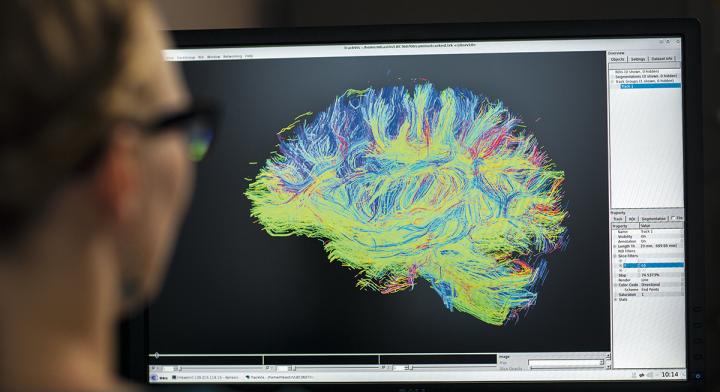
A £1.9 million investment in dementia research was announced. The project – known as the TriBEKa Consortium – aims to give a clearer understanding of the first factors that determine risk of dementia. It brings together experts led by the University, the Barcelonabeta Brain Research Centre and Sweden’s Karolinska Institute. The funding came from the US-based Alzheimer’s Association and a donation from an anonymous international charitable foundation.
As part of the project, researchers will study the brain using positron emission tomography and magnetic resonance imaging. Participants in the study will also take part in memory tests, and family history and lifestyle assessments.
Professor Craig Ritchie, Director of the University’s Centre for Dementia Prevention, said: “As brain changes that cause dementia happen many years before symptoms, we have an opportunity to prevent progression before people are affected. TriBEKa puts us in a unique position to understand how we might do this.”
August 2017: Celebrating 70 years of festivals
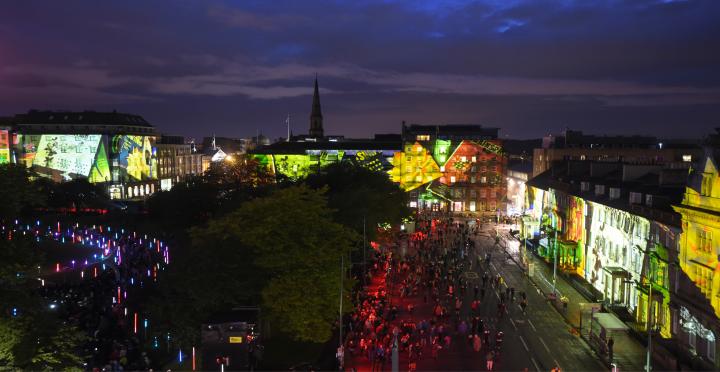
Last August marked 70 years of the Edinburgh International Festival (EIF), which was founded in 1947 as ‘a platform for the flowering of the human spirit’.
The University offers many of its spaces as festival venues and collaborates with organisers to host major events at the EIF, as well as the world-renowned Edinburgh Festival Fringe and Edinburgh International Film Festival.
Among the highlights were: the University partnering with EIF for its epic opening event, Bloom, during which projections lit up the city’s St Andrew Square; the University’s prestigious James Tait Black Prizes for Fiction and Drama being hosted once again at the Edinburgh International Book Festival; and Edinburgh academics presenting their research to the public in the Cabaret of Dangerous Ideas topical Fringe talk series.
The University at the festivals
September 2017: The University opens its doors

The University took part in the annual Edinburgh Doors Open Day, one of the city’s most popular free events. Promoted by the Scottish Civic Trust and coordinated by the Cockburn Association, the event offers people a rare opportunity to see inside some of the most important architectural, social and cultural buildings in the area.
With a 430-year history and an estate which includes many converted, listed and contemporary buildings, the University was able to offer an interesting and varied selection for the weekend-long event.
Visitors enjoyed access to the iconic McEwan Hall in the University’s Central Area, which, following a £33 million restoration, has been returned to its former glory; the FloWave Ocean Energy Research Facility at the King’s Buildings; and the Anne Rowling Regenerative Neurology Clinic at Little France. Each building provided information to help visitors learn more about its history, design and day-to-day function, and many offered a range of activities, exhibitions and talks.
October 2017: Nobel Peace Prize winner announced
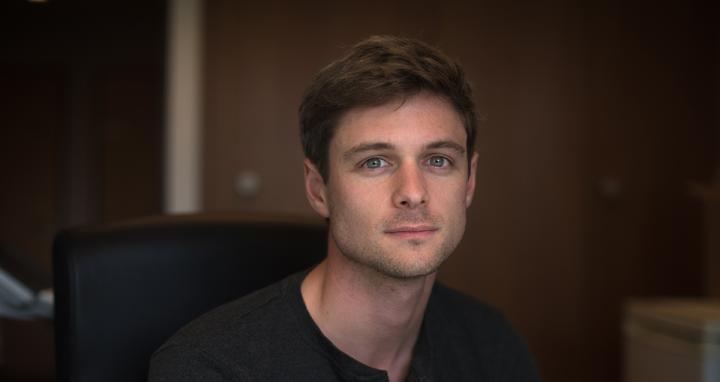
Edinburgh graduate, Daniel Högsta, played a key role in the organisation that received the 2017 Nobel Peace Prize. Mr Högsta, who graduated from Edinburgh Law School in 2012, is Network Coordinator for the International Campaign to Abolish Nuclear Weapons (ICAN).
The award was given in recognition of ICAN’s work in driving the process to achieve the UN Treaty on the Prohibition of Nuclear Weapons. Passed on 7 July 2017, it is the first legally binding international agreement to comprehensively prohibit nuclear weapons. Its goal is their total elimination.
“We recognise that this award is both a hugely humbling honour as well as an incredible opportunity. The recognition of our strategy by the Nobel Peace Prize Committee is a massive boost. We’ll work harder to live up to it,” said Mr Högsta.
Mr Högsta began working with ICAN shortly after leaving Edinburgh. For the past two years, he has coordinated ICAN’s partnerships with more than 460 organisations. He has also lobbied governments in international forums, such as the UN.
November 2017: Quad renamed in honour of wartime heroine
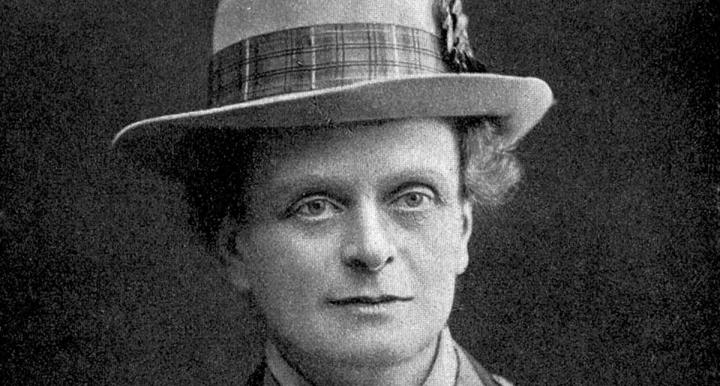
A medical pioneer and alumna who saved countless soldiers’ lives was honoured by the University 100 years after her death.
In November it was announced that the University’s Old Medical School courtyard is to be renamed in memory of the trailblazing doctor Elsie Inglis, who was one of Edinburgh’s first women graduates.
The announcement was made by the University’s Chancellor, Her Royal Highness the Princess Royal, during a visit to Edinburgh. A plaque highlighting the square’s revised name – the Dr Elsie Inglis Quadrangle – was unveiled.
The Edinburgh-raised doctor and suffragist founded 17 Scottish Women's Hospitals across Europe during the First World War. She also established a medical college for women and a maternity hospital for poor mothers in Edinburgh. After her death, Winston Churchill was quoted as saying that Dr Inglis and her medical staff “will shine in history”.
December 2017: £10 million gift boosts Edinburgh Futures Institute complex
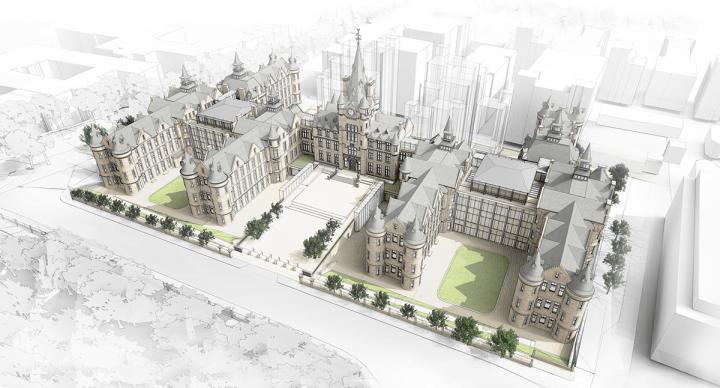
An anonymous donor pledged £10m to support a University initiative that will address some of society’s most pressing concerns. The gift – the biggest ever capital donation to the University – will help transform the city’s former Royal Infirmary into a state-of-the-art home for the Edinburgh Futures Institute.
The Institute will bring together researchers from across the University with other partners to tackle major issues within the economy, education and societies across the world.
Vice-Principal Professor Dorothy Miell, Head of the College of Arts, Humanities and Social Sciences, explained: “The world is experiencing major changes: climate volatility, political discontent, advances in artificial intelligence, economic upheavals. This presents big challenges. We need different ways of thinking about these issues and of devising new solutions. Edinburgh Futures Institute will make that difference.”
The Institute will showcase the University’s world-renowned expertise in the humanities, social sciences and arts, alongside its sector-leading work in data science – the collecting, organising and interpreting of large sets of digital information.

